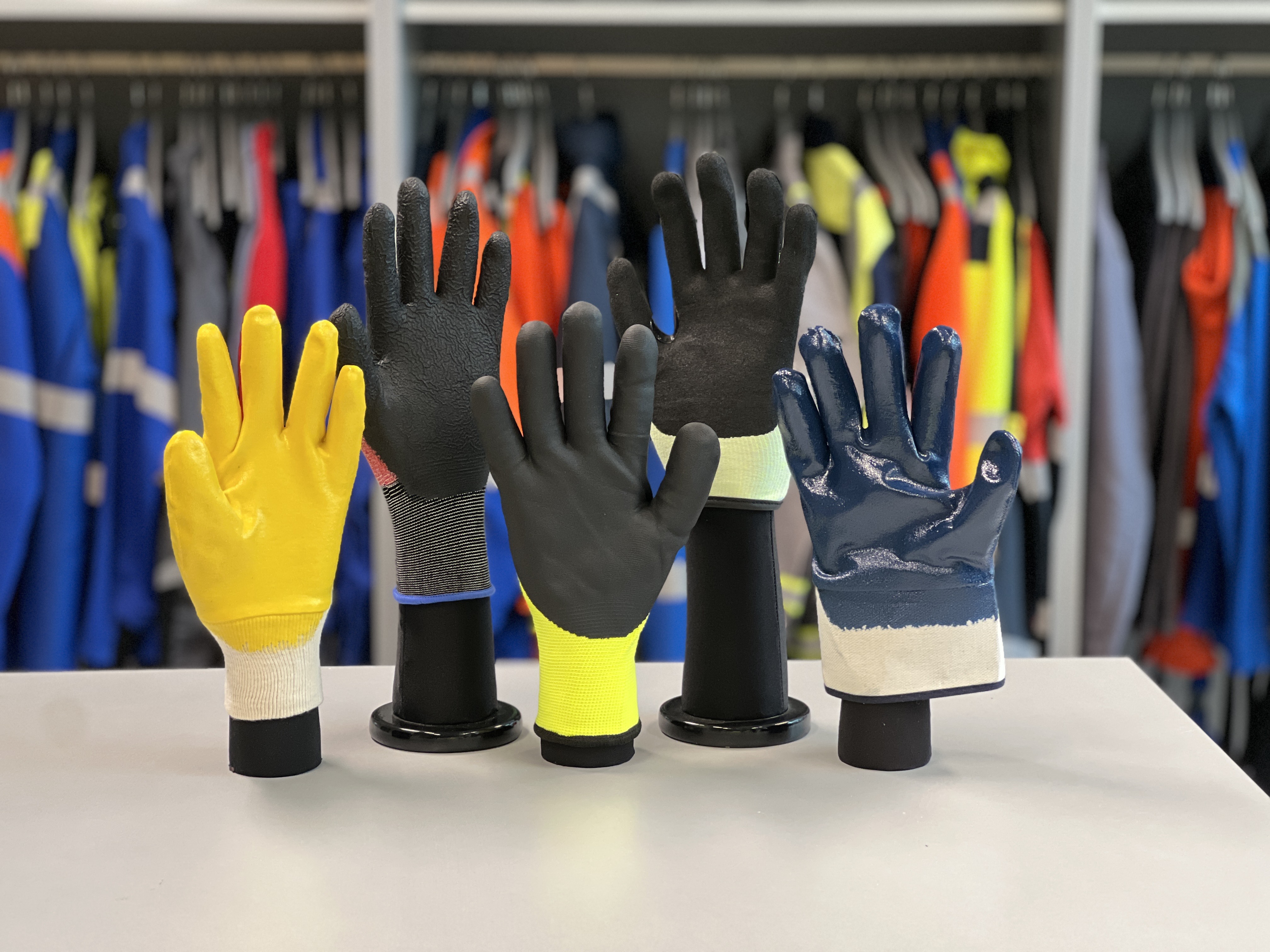
Coated gloves – why they are so important in everyday working life
Hands in constant use – protection is a must
Our hands are in constant use every day and have to endure a lot – whether lifting boxes, working with tools or handling oily parts. That is precisely why good hand protection is essential. But not all gloves are the same: Only the right coating ensures that you can work safely, efficiently and with a firm grip.
Choosing the right glove coating
Choosing the right glove coating is crucial for safety, comfort and productivity at work. Different applications have different requirements: non-slip grip, protection against liquids or maximum dexterity. Here is an overview of the three most important coatings.
A coating is an additional layer that is applied to the inner surface or fingers of a glove. Depending on the area of application, materials such as PU (polyurethane), latex, HDPE or nitrile are used. This layer ensures that the glove not only protects, but also provides the necessary grip and the appropriate properties for the respective task.
An overview of the most important glove coatings
PU coating – for precision and dexterity
PU stands for polyurethane, a plastic produced by the reaction of polyols with isocyanates , whereby polyols are polyhydric alcohols with two or more hydroxyl groups – usually based on polyethers or polyesters – and isocyanates are highly reactive compounds with one or more isocyanate groups (-N=C=O) that are often obtained from aromatic or aliphatic precursors such as TDI or MDI. The material is very versatile and is used in many areas – for example in foams, paints and, of course, as a coating for work gloves.
A secure grip is particularly important in warehouses or during assembly work. PU-coated gloves offer exactly that: they are thin, flexible and non-slip – ideal for reliably gripping boxes, parcels or small components. The excellent tactile sensitivity allows even delicate work to be carried out without any problems, while at the same time relieving strain on the hands.
Advantages:
- High mobility
- Secure grip on smooth surfaces
- Ideal for precise work
Latex coating – robust and non-slip, even when wet
Latex is a milky rubber dispersion that can either be of natural origin – extracted from the milky sap of the rubber tree Hevea Brasiliensis – or synthetically produced, usually based on styrene-butadiene rubber (SBR). The main components are long-chain polyisoprene molecules, whose elastic polymer structure is responsible for the high elasticity, tear resistance and grip. Vulcanisation (chemical cross-linking with sulphur) gives latex additional robustness and durability.
On the construction site or in the garden, grip is what counts most. Latex gloves are elastic, robust and offer a strong grip even when wet. They are perfect for rough work where tools or materials must be held firmly.
Advantages:
- Very good grip, even when wet
- Elastic and tear-resistant
- Perfect for construction, gardening and rough work
Nitrile coating – resistant to oil and chemicals
Nitrile is a synthetic rubber, more precisely nitrile rubber (NBR), which is produced by the polymerisation of acrylonitrile and butadiene. This structure combines the elasticity of rubber with high resistance to oils, fats, solvents and many chemicals. The higher the acrylonitrile content, the better the chemical resistance – but at the expense of flexibility.
Compared to PU (polyurethane), nitrile gloves are more robust and resistant to chemicals, but slightly less flexible and less sensitive. Compared to latex, they score points because they are allergy-free and have a significantly higher resistance to oils and solvents – however, they are usually thicker and less elastic.
Typical areas of application: metalworking, automotive industry, workshops, chemical laboratories.
Advantages:
- High resistance to oil, grease and chemicals
- Liquid repellent
- Very good grip on oily surfaces
Compact explanation
- Warehouse: PU for a secure grip and precise work.
- Construction/gardening: Latex for a strong grip in dry and wet conditions.
- Workshop/industry: Nitrile for protection against oil, grease and chemicals.
Conclusion
Coatings make all the difference: they give gloves the necessary grip, durability and safety. Whether PU, latex or nitrile – with the right choice, you not only work more safely, but also more efficiently.
If you are looking for a suitable glove for your workplace, please visit:
